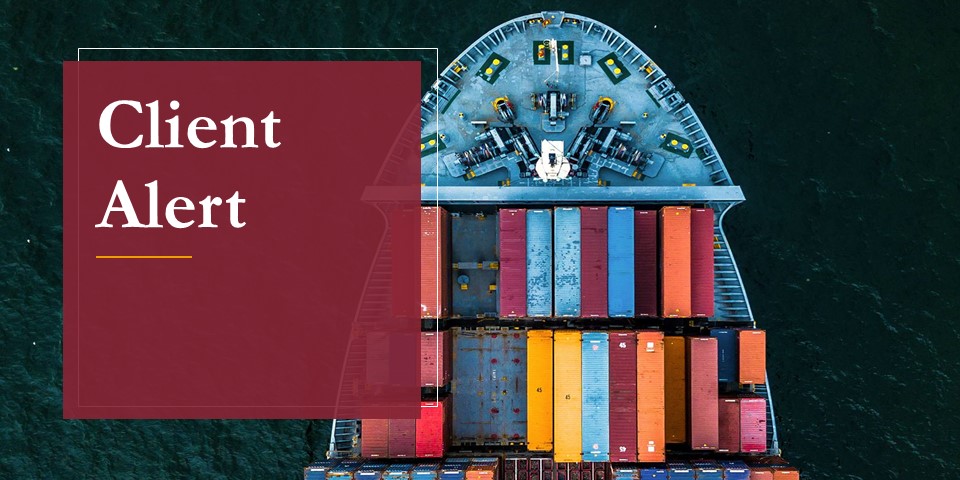Listen to the article
Trump Administration Intensifies Trade Enforcement Through Tariffs and False Claims Act
The Trump Administration has wasted no time implementing dramatic trade policy changes, imposing new tariffs on major trading partners while signaling an aggressive enforcement approach that may leverage the False Claims Act (FCA) as a key mechanism for ensuring compliance.
Since returning to office in January 2025, President Trump has issued multiple executive orders establishing new tariff regimes. On his first day, he released the “America First Trade Policy” memorandum outlining immediate priorities and declared a national emergency concerning “the sustained influx of illegal aliens and illicit opioids” from Canada, Mexico, and China.
By February 1, President Trump had imposed a 10 percent tariff on imports from China and 25 percent tariffs on goods from Mexico and Canada, with special provisions for Canadian energy products. The China tariff doubled on March 4, when the Canada and Mexico tariffs also took effect after a 30-day delay.
The Administration has continued adjusting these measures, including amending the Canada and Mexico tariffs to exclude goods qualifying for duty-free entry under USMCA rules of origin. Trump also expanded existing Section 232 steel and aluminum tariffs, increasing the aluminum tariff to 25 percent, eliminating country exemptions, and directing U.S. Customs and Border Protection (CBP) to prioritize reviews of product classification and impose maximum penalties for noncompliance.
Further signaling his trade policy direction, President Trump issued the “Reciprocal Trade and Tariffs” memorandum in mid-February, calling for increased U.S. tariffs in response to what the Administration deems unfair foreign practices.
As these sweeping tariff changes take effect, a critical question emerges: How will the Administration enforce compliance while simultaneously pursuing its goal of reducing the federal workforce?
Justice Department officials have signaled that the False Claims Act will play an increasingly central role in the Administration’s enforcement strategy. In a recent speech, Deputy Assistant Attorney General Michael Granston emphasized the FCA’s power in combating customs duty evasion, effectively inviting whistleblowers to initiate claims alleging such violations.
The FCA provides for substantial penalties against those who defraud the government, including cases where importers fraudulently avoid payment of customs duties—known as “reverse false claims.” What makes the FCA particularly potent is that actions can be initiated either by the Justice Department or by private whistleblowers (relators), who may receive up to 30 percent of any recovery.
The financial incentive for whistleblowers has driven a record number of qui tam suits, with the Justice Department reporting $2.9 billion in FCA settlements and judgments in fiscal year 2024. This enforcement mechanism could maintain robust customs enforcement even with reduced federal staffing.
Recent years have seen numerous significant FCA settlements in the customs area, including a $22.8 million payment by a vitamins manufacturer for misclassifying Chinese imports, $7.6 million from a womenswear brand for underreporting the value of imported apparel, and $10 million from Wisconsin-based companies that undervalued goods from China.
However, important legal questions remain about applying the FCA to customs violations. The pending Ninth Circuit case, Island Industries, Inc. v. Sigma Corp., highlights jurisdictional tensions between the FCA and existing customs enforcement regimes. The court is examining whether the Court of International Trade’s exclusive jurisdiction over customs duty cases precludes FCA claims in federal district courts, and whether Section 592 of the Tariff Act provides the exclusive means for recovering unpaid duties.
The outcome could significantly impact the viability of using the FCA for tariff enforcement. If the Ninth Circuit limits FCA use in customs cases, it could undermine the Administration’s enforcement strategy. Conversely, a favorable ruling could open floodgates for trade-related FCA litigation.
For businesses, the implications are clear. With rising tariffs creating increased incentives to mitigate exposure, importers face heightened compliance risks. Companies should evaluate their customs compliance programs, ensure data integrity for country of origin designations, review customs declarations for accuracy, and foster internal compliance cultures where potential whistleblowers feel comfortable raising concerns internally rather than proceeding directly with qui tam actions.
The consequences of FCA claims are substantial—cases often continue for years, with potential treble damages, significant fines, and attorneys’ fees that can far exceed traditional civil penalties under customs laws. Unlike certain enforcement actions, FCA claims don’t require demonstrating specific intent to defraud, making them particularly challenging to defend against.
As the Administration continues implementing its trade agenda, companies importing goods should recognize the changing enforcement landscape and take proactive measures to ensure compliance with rapidly evolving customs requirements.
Fact Checker
Verify the accuracy of this article using The Disinformation Commission analysis and real-time sources.




8 Comments
The intensification of trade enforcement is a complex issue with valid concerns on both sides. Tariffs can protect domestic industries but also raise consumer costs. Curious to see how the administration balances these tradeoffs.
Well said. The use of the False Claims Act could be an effective tool, but care must be taken to avoid overreach or abuse.
The administration’s focus on trade enforcement is understandable, but the application of the False Claims Act in this context raises questions. Careful monitoring will be needed to ensure the legislation is not misused.
Agreed, the False Claims Act is a powerful tool that must be applied judiciously to avoid unintended consequences.
While tougher trade policies may help domestic industries, the potential for increased customs fraud claims is concerning. Transparent and consistent enforcement will be key to maintaining fairness in the system.
Tariffs and trade enforcement are complex topics with valid arguments on both sides. It will be important to balance economic, security, and fairness considerations as these policies evolve.
Interesting to see how the administration is leveraging tariffs and false claims legislation to bolster trade enforcement. It will be important to balance economic and security priorities while avoiding overly punitive measures that could backfire.
Agreed, a nuanced approach is needed to ensure fair and effective trade policies. Curious to see how the FCA will be applied in this context.